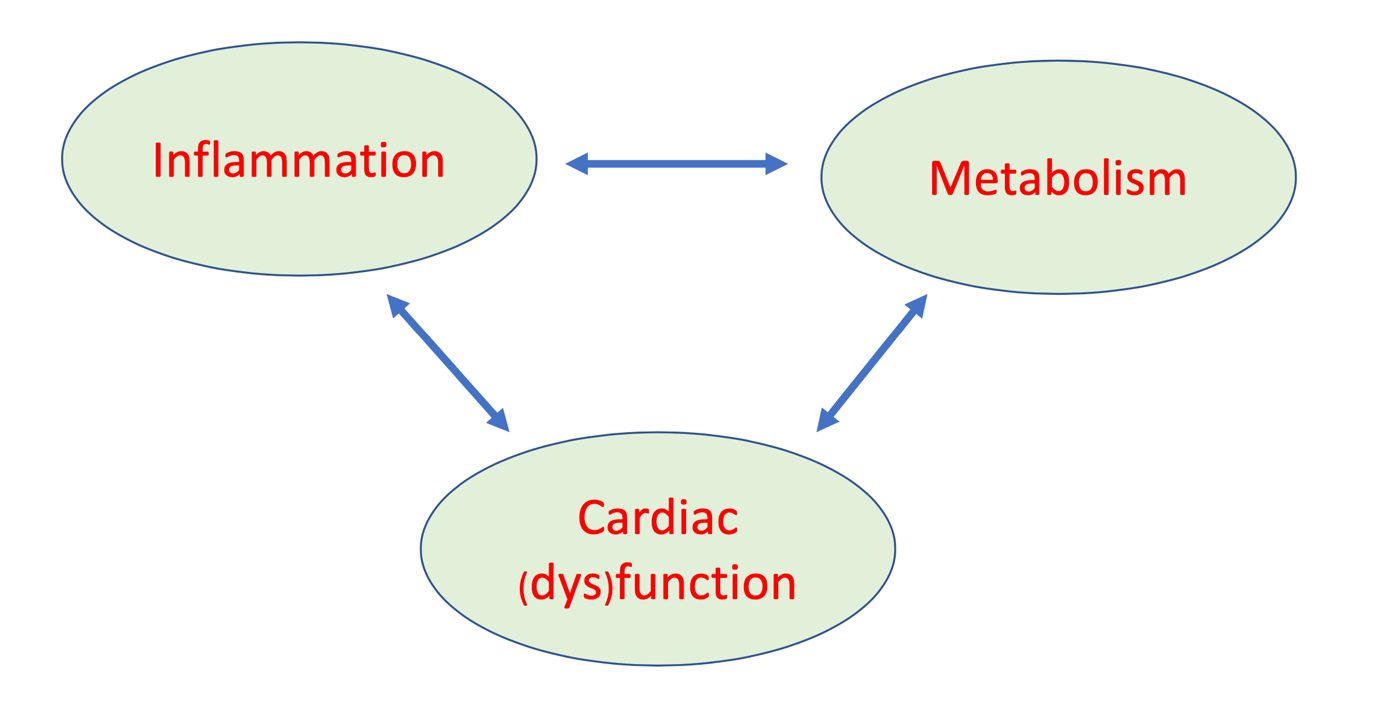Metabolic rewiring and inflammation as drivers of Heart Failure
The combination of risk factors associated with the metabolic syndrome (obesity, hypertension, dyslipidemia, insulin resistance) seriously increases the risk of developing heart failure, Heart Failure with preserved Ejection Fraction (HFpEF) in particular. The pathogenic mechanism underlying the cardiac diastolic dysfunction frequently observed in HFpEF patients, remains largely elusive. Recent findings point to a close link between the dysregulation of cardiac metabolism and inflammatory processes as causative factors in the pathogenesis of HFpEF.
In the recent past, our research focused on the role of nuclear hormone receptors, the PPAR’s in particular, acting both as transcriptional regulators of cardiac lipid metabolism and inhibitors of inflammatory signaling pathways in the cardiac muscle cell. More recently, it became clear that the inflammatory response is directly affected by alterations in systemic and cellular metabolism and that this is likely to contribute to disease progression. It seems that not only the function and phenotype of inflammatory cells, but also that of various cell types in the cardiac tissue, is modulated by alterations in cellular metabolism.

The goal of our research is (1) to assess the biological role of metabolic rewiring and inflammation in HFpEF and (2) to explore if therapeutic interventions at the level of cardiac metabolism attenuate cardiac inflammation and improve cardiac function.
The research is performed in close collaboration with the groups of Prof. Dr. Blanche Schroen (experimental cardiologist) and Dr. Vanessa van Empel (clinical cardiologist, head of HFpEF outpatient clinic) from the Department of Cardiology.
By combining molecular, cellular and physiological techniques, and by making use of bioinformatic approaches, we are investigating the relevance of alterations in cardiac metabolism and inflammation, and the interaction between these two processes, in the onset and progression of HFpEF.